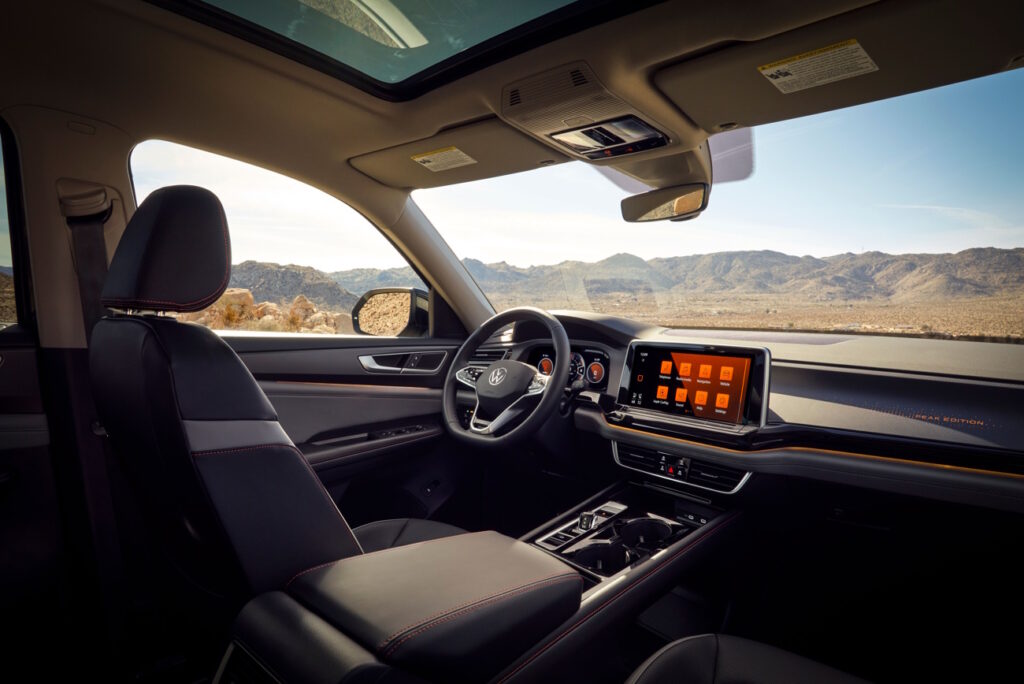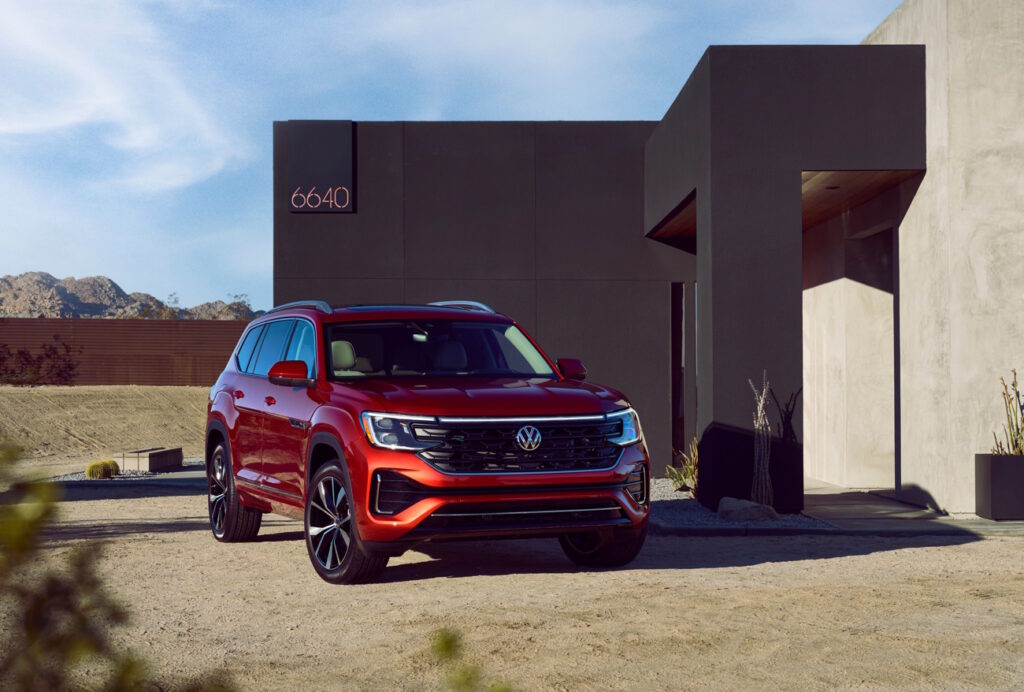In the realm of three-row SUVs, the common attributes of being sizable, practical, tech-savvy, and family-friendly are almost cliché. Volkswagen’s Atlas, a stalwart in this segment, has undergone a revamp for 2024, entering the arena against formidable contenders like the Jeep Grand Cherokee L, Nissan Armada, and Kia Telluride. But does the Atlas, despite its upgrades, have the mettle to take on these automotive heavyweights?
The most conspicuous change to the exterior is the addition of a sleek lightbar that accentuates the Atlas’s bold front end, now exuding a more aggressive aura. Coupled with a Platinum Gray Metallic paint job and 21-inch wheels, the Atlas presents a commanding presence. Although the side and rear profiles may lack the same aggressive stance, the overall design impresses, with squared-off taillights and a refined rear adorned with the iconic Volkswagen logo beneath silver trim.

Stepping into the cabin reveals a mix of commendable and quirky elements. The steering wheel features welcome physical buttons, providing intuitive control over media functions. Digital dials, offering ample adjustability, strike a balance between modernity and tradition. However, the climate control slides, a signature Volkswagen feature, disappoint with their lack of backlighting, making nighttime adjustments cumbersome. The infotainment system, while satisfactory, sees redemption through the convenience of wireless Apple CarPlay. The SEL Premium variant even throws in a wireless charger, albeit one that may heat up your phone a bit.
The interior ambiance is heightened by black Vienna seats with silver trim, boasting impressive heated and ventilated functionality. Standard features like the heated steering wheel add a touch of luxury. USB-C chargers abound, catering to modern connectivity needs. Rear passengers are treated to ample space, comfortable heated seats, and individual climate controls. However, the third row seems more suited to children or those not on your preferred list. The transmission switch, a Volkswagen staple, contributes to an uncluttered center console.
Under the hood, the 2024 Atlas bids adieu to the V6, embracing a 2.0-liter turbocharged inline-four that delivers a respectable 269 horsepower and 273 lb-ft of torque. Paired with all-wheel drive and an eight-speed automatic, the Atlas achieves a 0-60 MPH sprint in 7.3 seconds. The performance, though seemingly quicker, comes at the cost of a modest 22 MPG. The handling, typical of large SUVs, exhibits noticeable body roll and dull steering.

Volkswagen’s safety suite, dubbed IQ.DRIVE, adds sophistication with adaptive cruise control, rear traffic alert, lane keep assist, and automated braking. Drive modes, including Eco, Comfort, and Sport, cater to varied preferences, with Sport mode proving handy for highway overtaking. A standard head-up display enhances driving ease, providing essential information at a glance.
Trim options for the Atlas are relatively straightforward, and the top-tier SEL Premium R-Line, priced at $54,000, offers an extensive list of standard features. The lone $695 option for second-row dual captain chairs may appeal to those with fewer passengers to accommodate. Potential buyers eyeing the $38,000 SE trim might find the SEL Premium R-Line or the regular SEL at $48,000 more enticing.
Considering the 2024 Volkswagen Atlas demands a thoughtful pause. While it boasts a robust engine, attractive aesthetics, and commendable features, its tech quirks and climate control nuances might deter some. Those loyal to the Volkswagen brand will likely find comfort in the Atlas’s roomy interior, comfortable seats, and capable engine. Nevertheless, exploring other three-row SUV options in the market might unveil a more fitting choice for discerning buyers.







